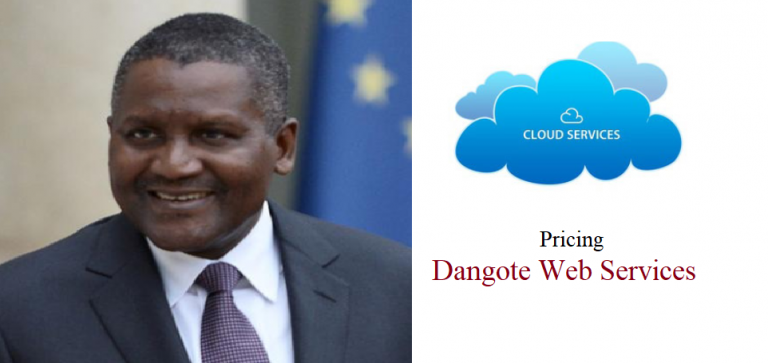
In a piece, I noted that Nigerian techies and firms are using American hosting companies even for the top level .ng and .com.ng domains. Besides the ease of using the U.S. hosting services, another main factor was cost: the foreign hosting firms are largely cheaper compared to the local alternatives.
Nigerian techies really love America. According to Hub8, 72% of our hosted sites are domiciled in U.S. Those sites include the .ng and .com.ng. It is really unfortunate that we cannot keep anything in Nigeria. Government has been campaigning, promoting .ng and .com.ng domains. But as soon as the users acquire them, they put them in hosting providers in U.S. Honestly, I do not see how that will change in coming years because even most of the local hosting firms are resellers of American hosting companies: it is tough to run a 24/7 business when there is no electricity.
In the LinkedIn community, some commenters noted that power may not necessarily be the main factor. The reasoning was that power is a factor local hosting companies can adjust for and price into their products. They explained that our telecom companies like MTN, Airtel, and Glo are independently generating power for their businesses, and are doing just fine. In other words, if MTN uses generators to run its business, hosting companies can simply do that, since that has not severely hurt MTN.
Unfortunately, that thinking is flawed. It is flawed because the products sold by MTN and other telcos are not internet products; they are digital non-internet products. Yes, they are bounded and constrained by national geography. If you are in Nigeria, you cannot buy your cell phone number from U.S.-based Verizon or AT&T. The implication is that MTN and Glo are never in direct competition with Verizon and AT&T because Nigerians cannot have the opportunity to shop for phone numbers across the national boundaries. That means, even if MTN and Glo should include the cost of independent power generation in their pricing, you have no alternative than to pay for it [the telcos have made it clear that Nigerians could save if they have reliable grid supply across Nigeria].
Register for Tekedia Mini-MBA edition 19 (Feb 9 – May 2, 2026): big discounts for early bird.
Tekedia AI in Business Masterclass opens registrations.
Join Tekedia Capital Syndicate and co-invest in great global startups.
Register for Tekedia AI Lab: From Technical Design to Deployment (next edition begins Jan 24 2026).
Contrast that localized positioning to web hosting. Web hosting product is an Internet product which means the competition is global and unbounded by geography. A Nigerian user can buy hosting from a U.S. company unrestricted. So, if someone begins a web hosting business in Nigeria with 24/7 generator and adds the power cost to the hosting pricing, that person will struggle because if the price is higher compared to what American competitors offer, Nigerians can easily shop across the border. This is one of the biggest challenges of Internet products: they are unbounded by geography and that makes competition global.
Pricing Dangote Web Services
I will explain this pricing relationship with Dangote Cement (which exists) and Dangote Web Services (which does not). The core thing here is geography. Dangote Cement is sold in Nigeria and it is a dominant brand. Even though the relative price of a bag of Dangote Cement may be higher than one sold in German, it is irrelevant as no one is going to shop for a bag of cement in Germany while in Nigeria. Dangote Cement generates its own power to make its cement, and that pushes its price higher [I assume if the power comes from the grid, the product may be cheaper]. We all buy the cement at the price Dangote Group sells because there are few alternatives. The German cement may have been cheaper but that is irrelevant because of distribution cost. This Dangote Cement is like MTN which also generates its own power and have the capacity to increase price to cover the extra expenses.
But consider a scenario where we have Dangote Web Services (DWS), and Dangote Group wants to use the same 24/7 independent power station to run the servers which are located in Nigeria. It can do that, but it will struggle if it wants to add the extra power expenses in its pricing. Unlike cement which is not an internet product, the DWS is an internet product and can be bought across national boundaries with practically limited friction. So, DWS will struggle on pricing when compared with foreign competitors because the electricity expenses have increased its cost. In that case, Nigerians will go for the U.S. hosting competitors since the pricing is better. This scenario is what is happening between the local hosting firms and their counterparts in U.S., and the very reason Nigerians choose overwhelmingly foreign hosting services.
All Together
The Dangote Cement vs. Dangote Web Services scenario as explained is what is happening in the market. MTN and Glo are not offering internet services and that limits the scope of the global competition against them. The mobile numbers they assign to customers are localized and no one outside Nigerian can challenge them competitively. That gives them the leverage to recoup all expenses including power. But for local web hosting companies, the boundary advantage collapses, providing an opportunity for Nigerians to shop globally. In that case, they look for places with better pricing, i.e. not suffering from “expensive electricity”.
So, Dangote Cement will thrive in Nigeria but Dangote Web Services under global competition will struggle because Nigerians can easily find alternatives on the web unbounded by geography. Indeed, internet products compete globally; a challenge for local entrepreneurs creating and selling them. That explains while .ng and .com.ng are bought from (government approved) local domain sellers but hosted outside the country.
---
Connect via my
LinkedIn |
Facebook |
X |
TikTok |
Instagram |
YouTube



